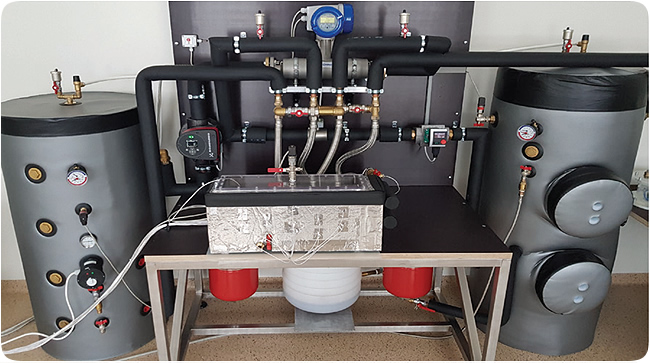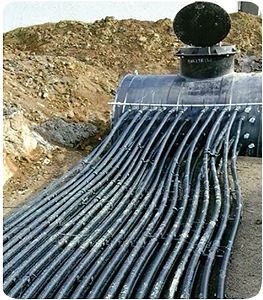SUSPIRE project's target is to create an effective integrated energy recovery system (equipment
& methodology) as well as a commercialization framework to save 20% of the global energy
consumption in the PRECICAST BILBAO (PCB) investment casting company.
Process industry companies require/consume a significant
amount of energy, but most of it gets lost during the
different transformation phases. To avoid this loss and to
gain efficiency, SusPIRE project's international consortium
is working on an energy recovery system which, combined
with the manufacturing process of energy intensive
companies, will recover energy from the different heat
streams increasing existing energy recovery rates.

Advanced design and preliminary testing of low temperature heat exchanger for released steam in boilerclaves
Currently, a demonstrator of the project is being carried
out in the PRECICAST BILBAO (also PCB) precision casting
company (Spain), where the project consortium aims at saving 20% of the global energy consumption rates. The
results of the project will be applicable to other energy
intensive manufacturing companies at international level.
As explained by Jordi Hernando, project coordinator from
PCB "sustainability is a challenge for process industry
to gain competitiveness in a global market and develop
symbiotic capabilities with society".
During the project, by means of advanced simulation
techniques, a general architecture has been designed for
the whole plant coping with all existing types of residual
energy streams. As a result, a new generation of dual heat
exchangers with high energy recovery yield has been born.
Dual heat exchangers provide a double functionality: they
can exchange and store heat at the same time so existing
mismatches between energy generation and demand can
be encompassed.

Low temperature energy recovery system supported in a Borehole Thermal Energy System and a heat pump
An innovative design and an advanced data management system to save energy
Coming to another design level, the heat exchange
equipment benefits from the latest developments in Heat
Transfer Fluids (HTF), and more specifically, in siliconbased
fluids. Syltherm 800, commercialized by DOW,
that can withstand temperatures up to 450˚C without
significant degradation, is an example of this product
category.
Also, Phase Change Materials (PCM) have been used
during the project for energy storage at two temperature
levels. For high temperature values, H190 inorganic PCM
has been applied (approximately 190˚C melting point)
while RT82 organic PCM is used for lower temperatures
(approximately 80˚C melting point).
Finally, a Borehole Thermal Energy Storage System
(BTES) has been built up in the plant. This equipment
has the specific support of a heat pump and gathers all
the low temperature residual heat streams coming from
refrigeration units of different equipment (compressors,
induction furnaces and cooling systems) and the incascade
residual heat coming from the high temperature
energy recovery circuit.
Among the main achievements reached up to date, an
advanced data management system that encompasses
optimal manufacturing and energy consumption has
been created to make a more efficient use of energy.
As explained by Fernando Santos, researcher at IK4-
AZTERLAN and technical coordinator of the SUSPIRE
project, "we have created a software to control the key
variables and key indicators that allow us to achieve the
best results in energy efficiency without disturbing the
manufacturing process or affecting product quality".
The energy stored at 190˚C is used for wax melting and
steam generation for etching baths and remaining energy
is stored in the ground whereas energy stored at 80ºC is
used for retro heating of water going into a boilerclave.
The low temperature energy supplied by the BTES is used
for building heating and hot water for workers. For the
remaining excess of heat a contract will be subscribed
with local authorities to supply heat to the sports center
next to the factory.
SUSPIRE project is funded by European Union's H2020 program for research, technological development and demonstration under grant agreement No. 680169. H2020-EE-2014-2015/H2020-EE-2015-1-PPP.